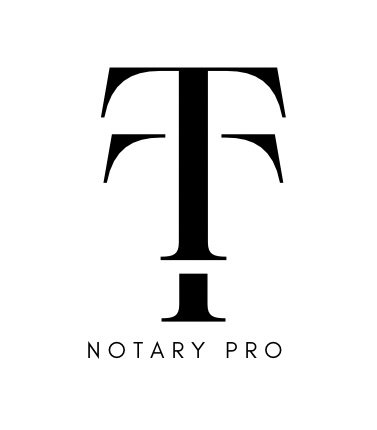
General Notary and Loan Signing Notary Questions
1. What is a Notary Public?
A Notary Public is an official appointed by the state to witness the signing of important documents, verify the identity of signers, and administer oaths. Their role is to prevent fraud and ensure proper execution of documents.
2. What types of documents can a Notary notarize?
Common documents include affidavits, powers of attorney, wills, deeds, contracts, and loan signing documents such as mortgage agreements and refinancing papers.
3. What is required for notarization?
The signer must appear in person, provide valid identification, sign the document in the presence of the Notary, and willingly acknowledge the signing.
4. What is a Loan Signing Notary?
A Loan Signing Notary specializes in notarizing loan documents during real estate transactions. They ensure all signatures are properly obtained and documents are completed accurately for lenders and title companies.
5. Why is a Loan Signing Notary important?
They facilitate smooth mortgage closings by verifying borrower identities, explaining the documents (without giving legal advice), notarizing required signatures, and returning the documents promptly to the lender or escrow company.
6. Can a Notary provide legal advice?
No, Notaries are not authorized to give legal advice or interpret documents. Their duty is to witness signatures and validate identities impartially.
7. What identification is acceptable for notarization?
Typically, government-issued IDs such as a driver’s license, state ID card, passport, or military ID are accepted, provided they are current and include a photograph and signature.
8. How long does notarization take?
Most general notarizations take only a few minutes. Loan signings may take 30 to 60 minutes or longer depending on the complexity and number of documents.
9. What is a mobile notary service?
A mobile notary travels to the signer’s location, providing convenience for individuals who cannot visit an office due to time constraints, health issues, or distance.
10. Are online notarizations available?
Some states allow remote online notarization using audio-video technology, but availability varies by jurisdiction and document type.
11. What fees can a Notary charge?
Notary fees are regulated by the state. Fees may vary for general notarial acts and loan signings. Additional travel fees may apply for mobile services.
12. How do I prepare for a loan signing appointment?
Bring a valid photo ID, do not sign documents before the appointment, and have questions ready for the signing agent. The Notary will guide you through the process but won't provide legal counsel.
For reliable, professional mobile notary and loan signing services in Oklahoma City and Surrounding areas, trust Taylor Trusted Notary Pro.
What is an apostille?
An apostille is a form of authentication issued for documents to be used in countries that are members of the Hague Apostille Convention. It certifies the document’s legitimacy for international use.
Which documents require an apostille?
Common documents include birth certificates, marriage licenses, diplomas, notarized affidavits, powers of attorney, and corporate documents.
Do all documents need an apostille for international use?
No, only documents being used in countries that recognize the Hague Apostille Convention require an apostille. Other countries may require different legalization procedures.
How do I get an apostille?
You must submit your original or certified document to the designated authority in the state where the document was issued, usually the Secretary of State's office.
Can Taylor Trusted Notary Pro assist with apostilles?
Taylor Trusted Notary Pro offers mobile notary services but does not directly issue apostilles. However, we can notarize documents properly so you can submit them for apostille authentication.
How long does the apostille process take?
Processing times vary by state and agency but typically range from a few days to a couple of weeks.
Is an apostille the same as a notarization?
No. A notarization certifies a signature on a document, while an apostille certifies the authenticity of the notarization or the issuing official’s signature.
Can I get an apostille for a notarized document?
Yes. Notarized documents often require an apostille for international use, verifying the notary’s authority.
For assistance with notarizations and guidance on apostille requirements, contact Taylor Trusted Notary Pro.
Please have a valid form of identification., temporary identifications will not be accepted. Thank you!
